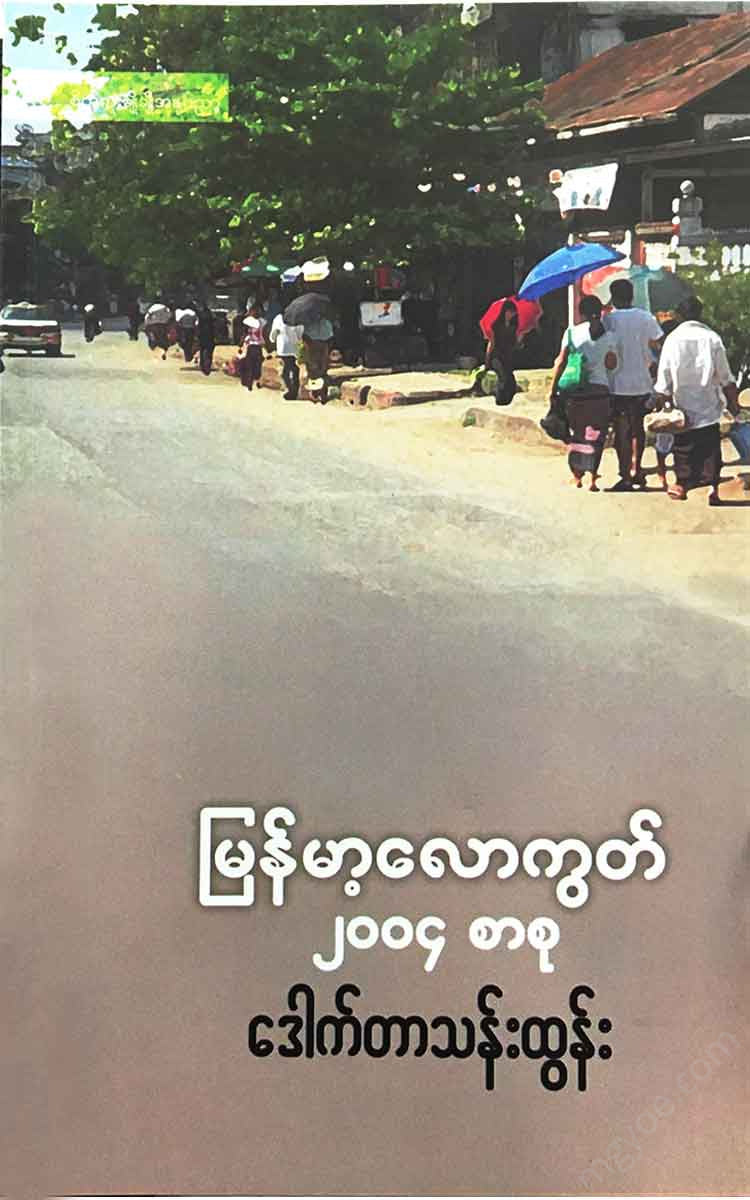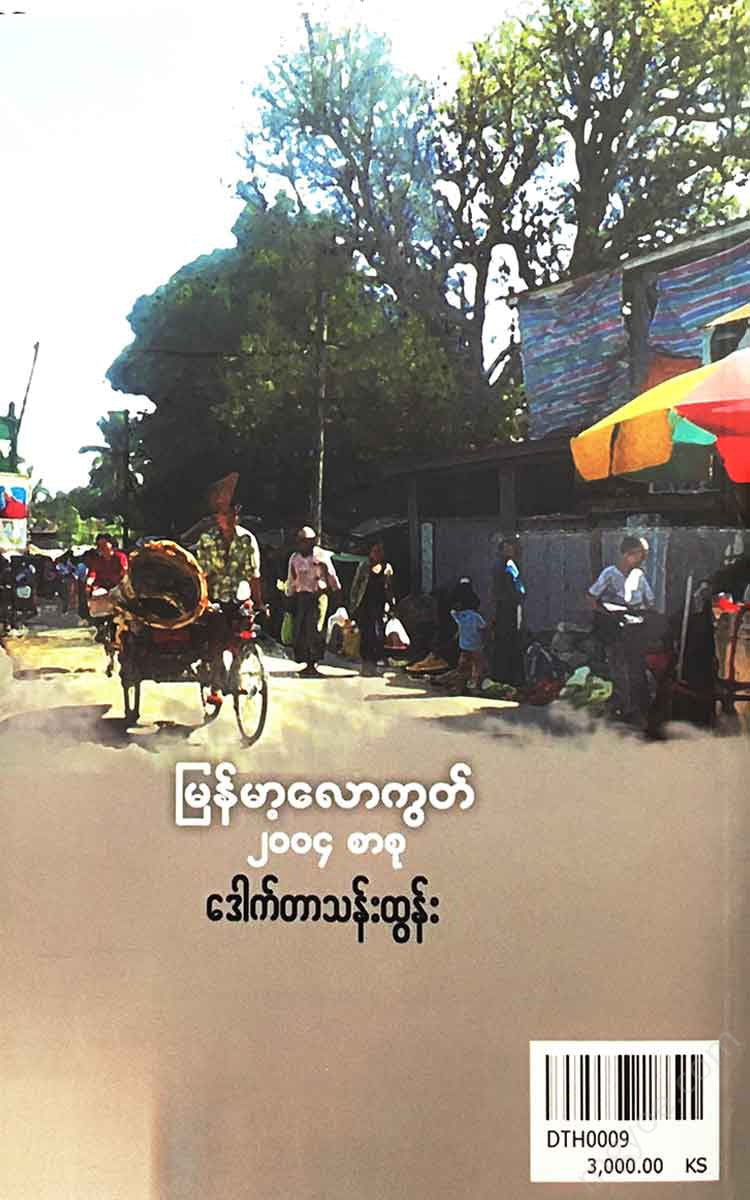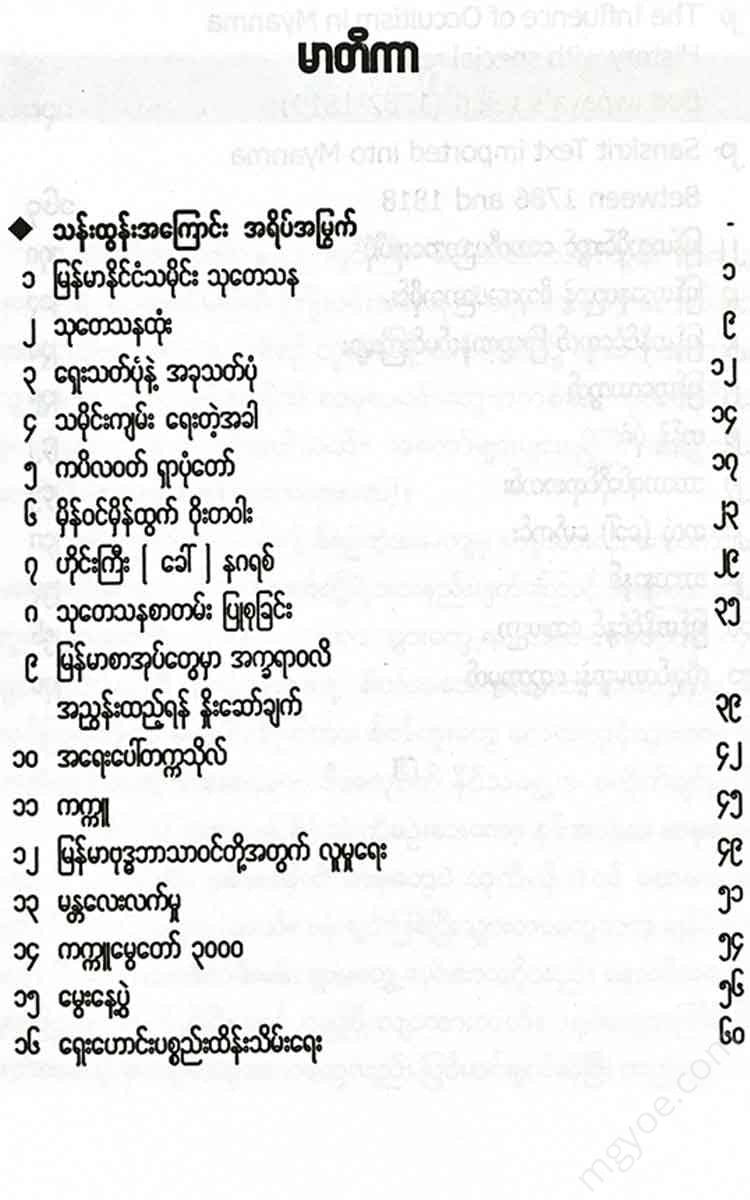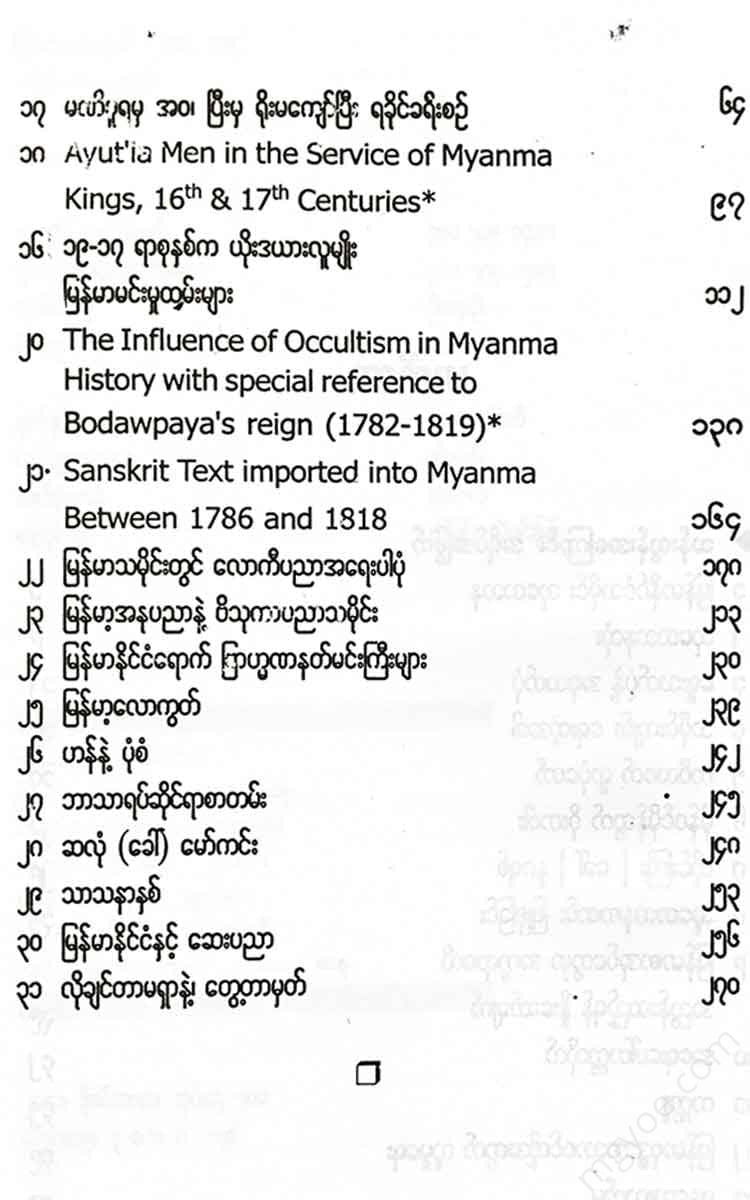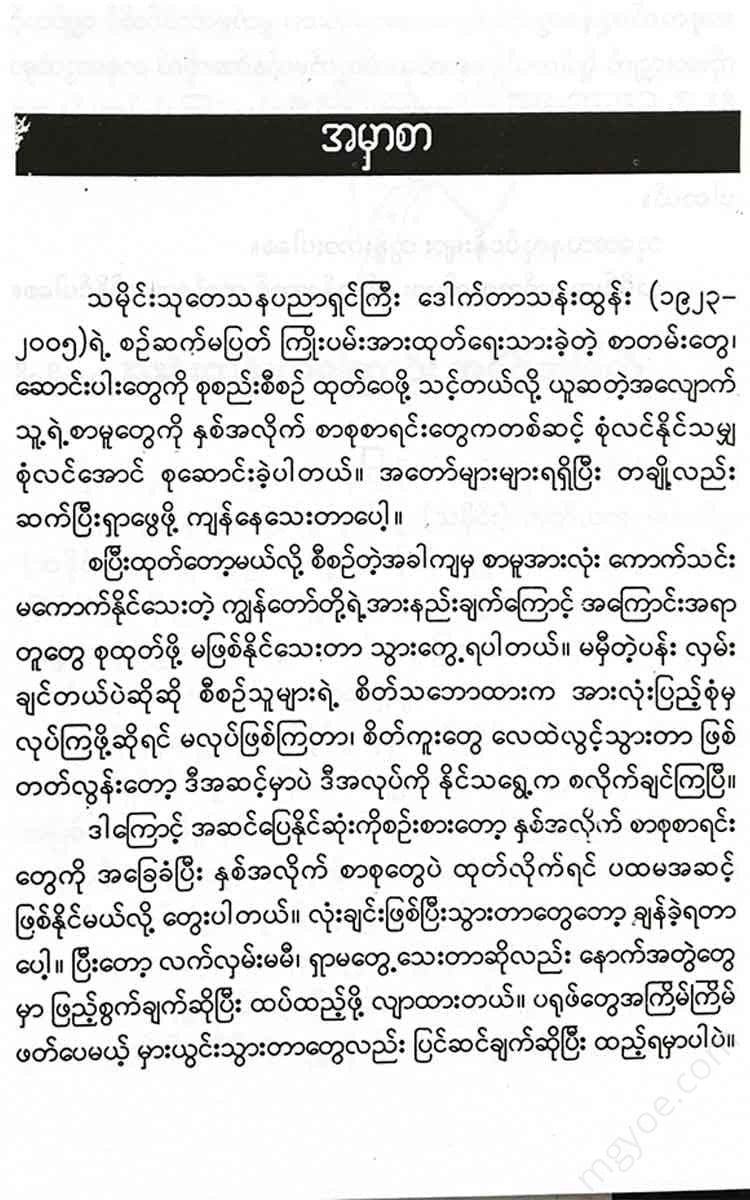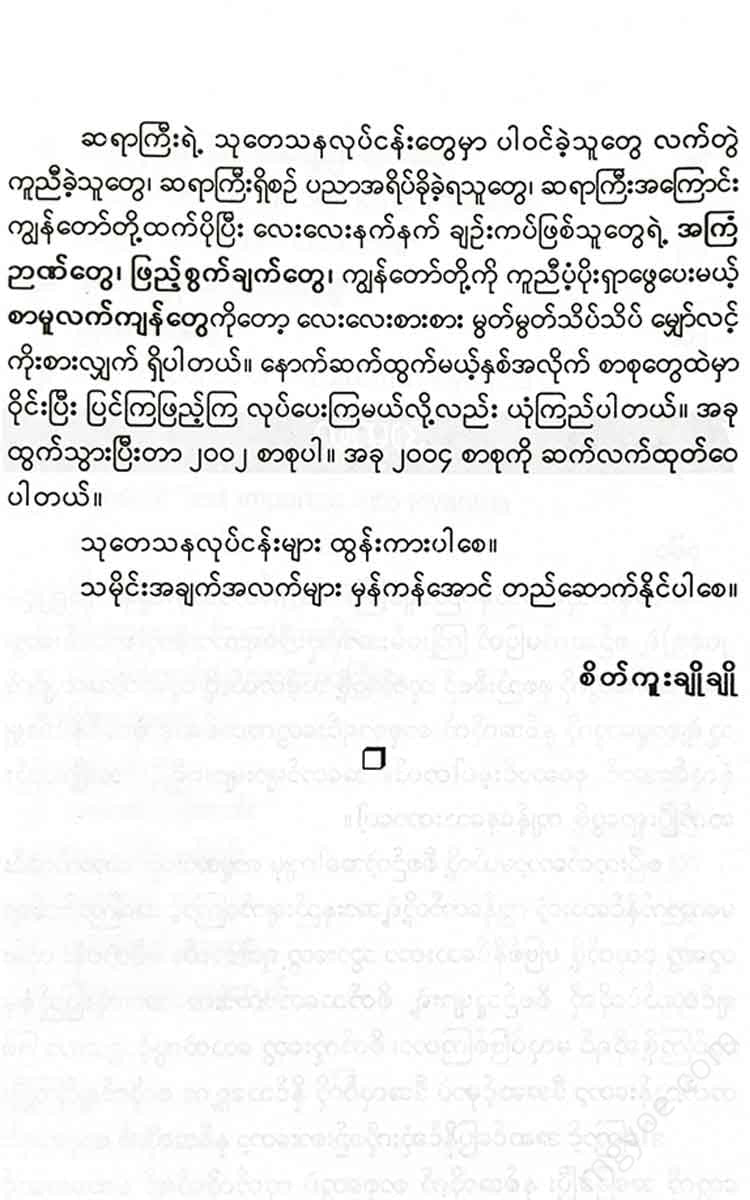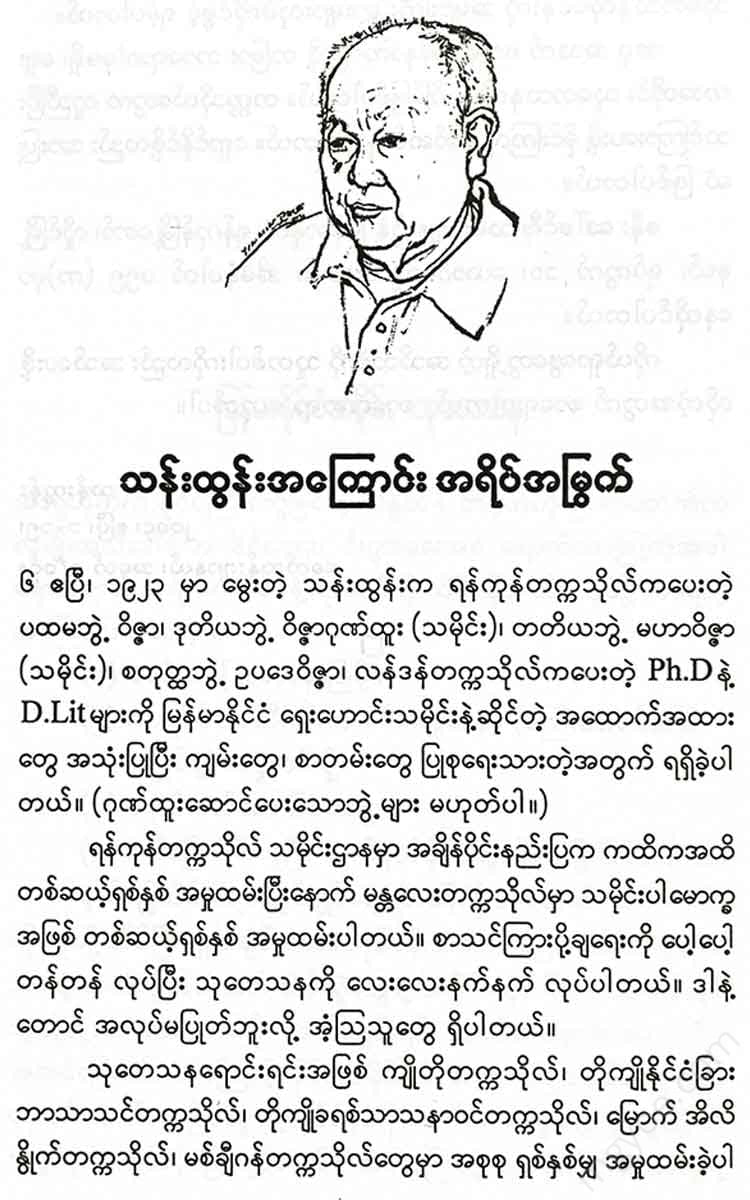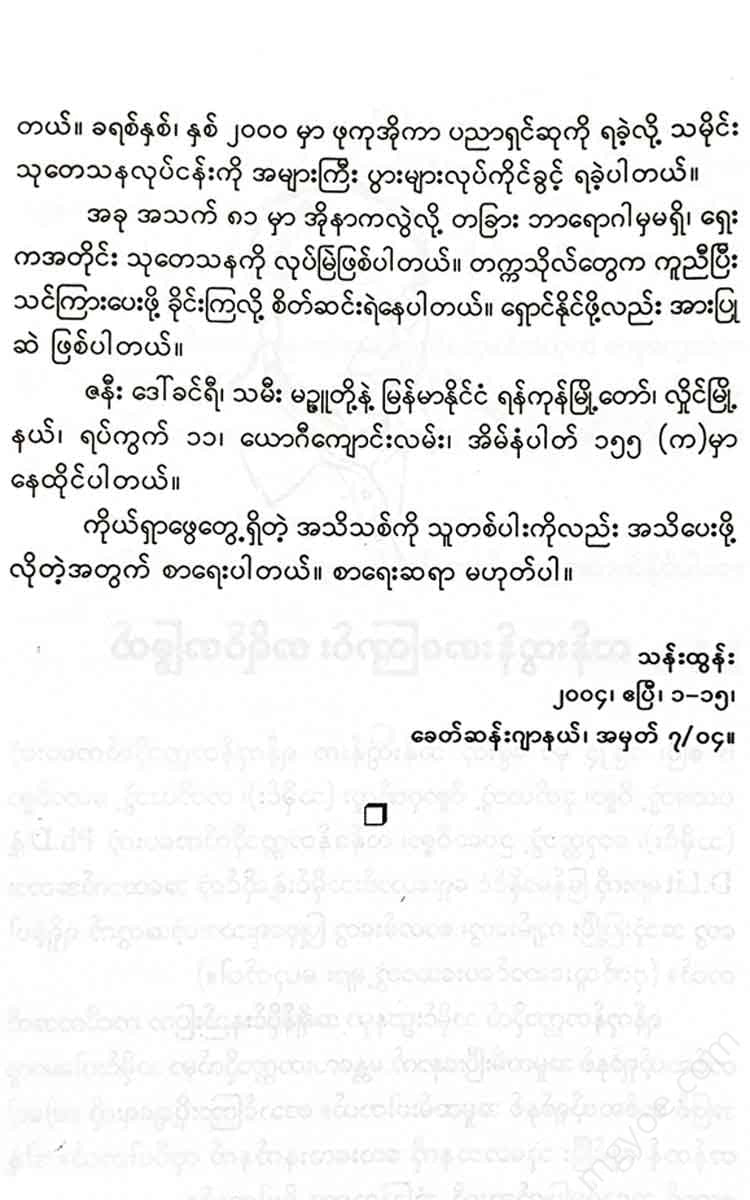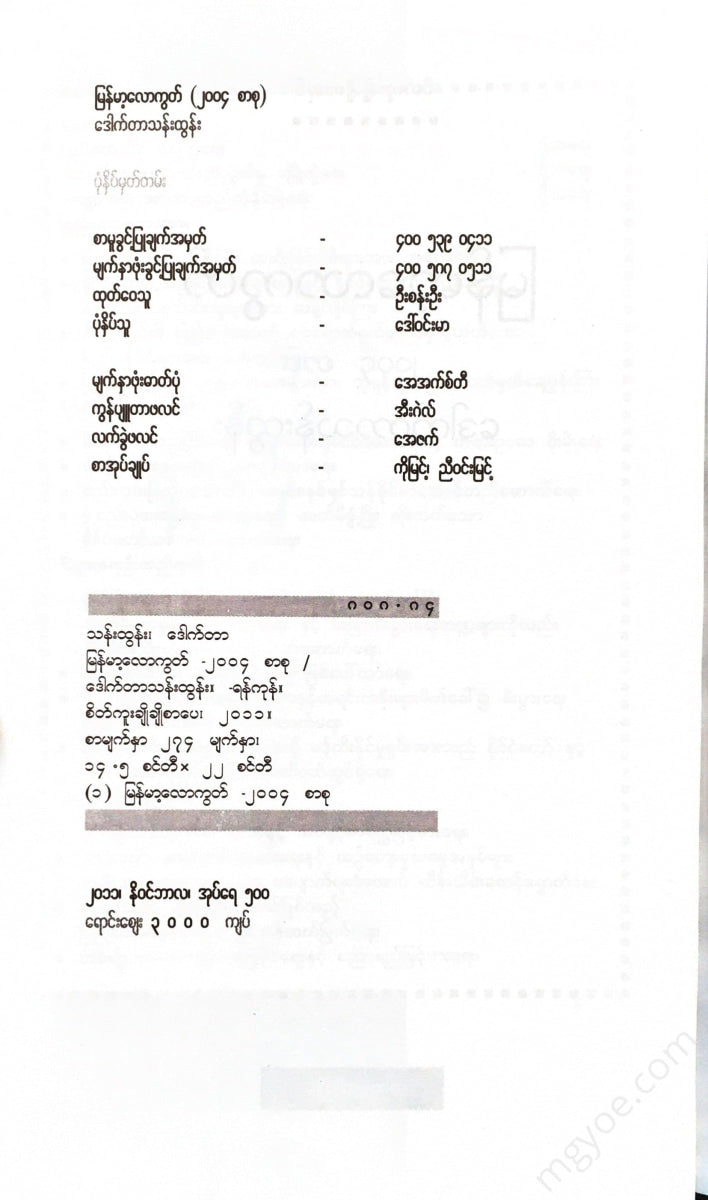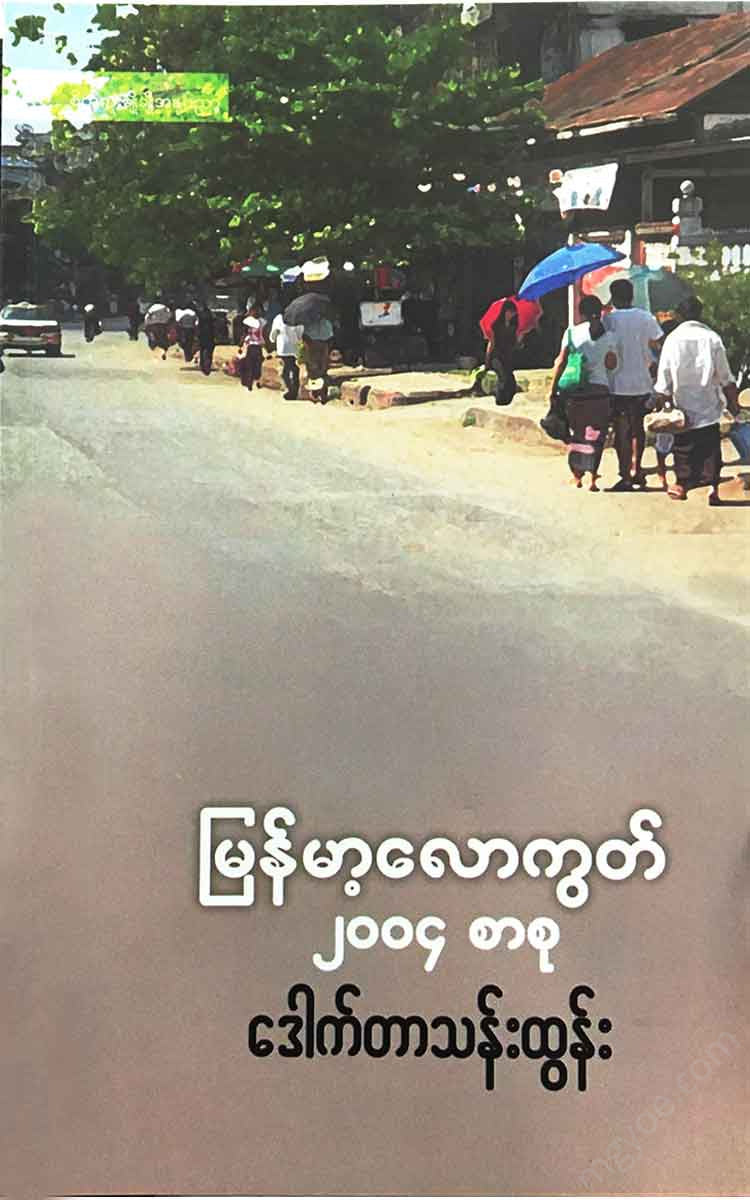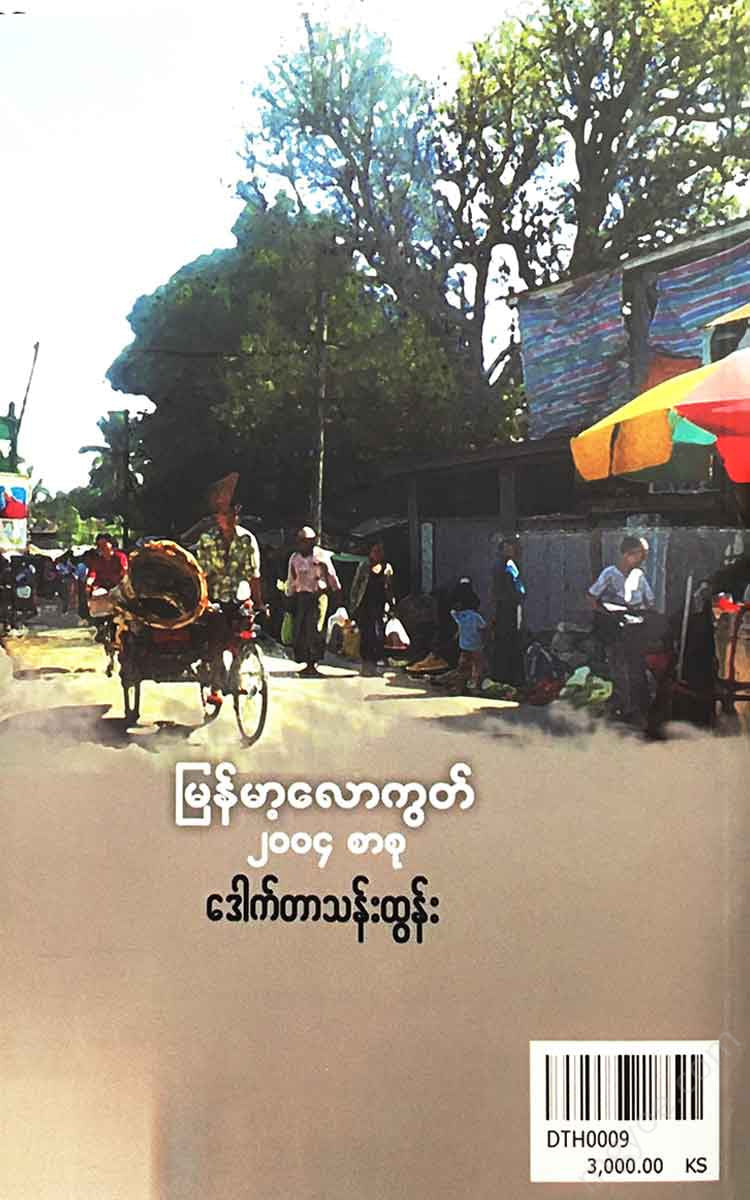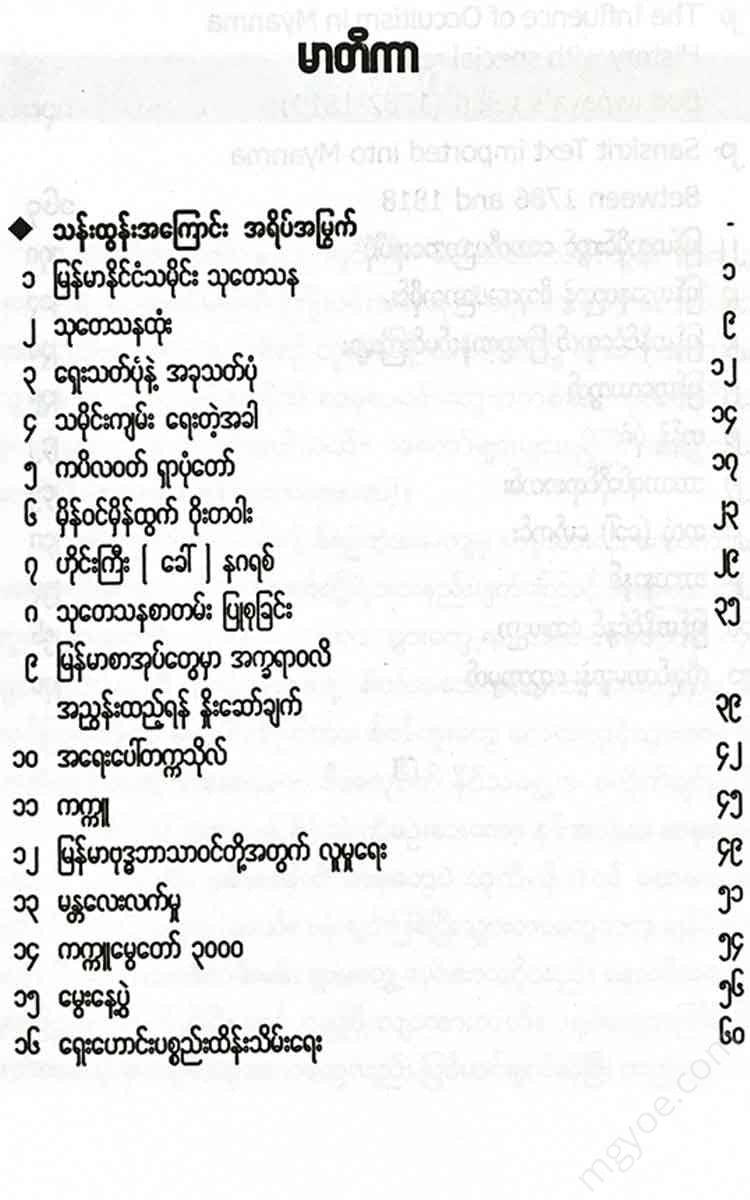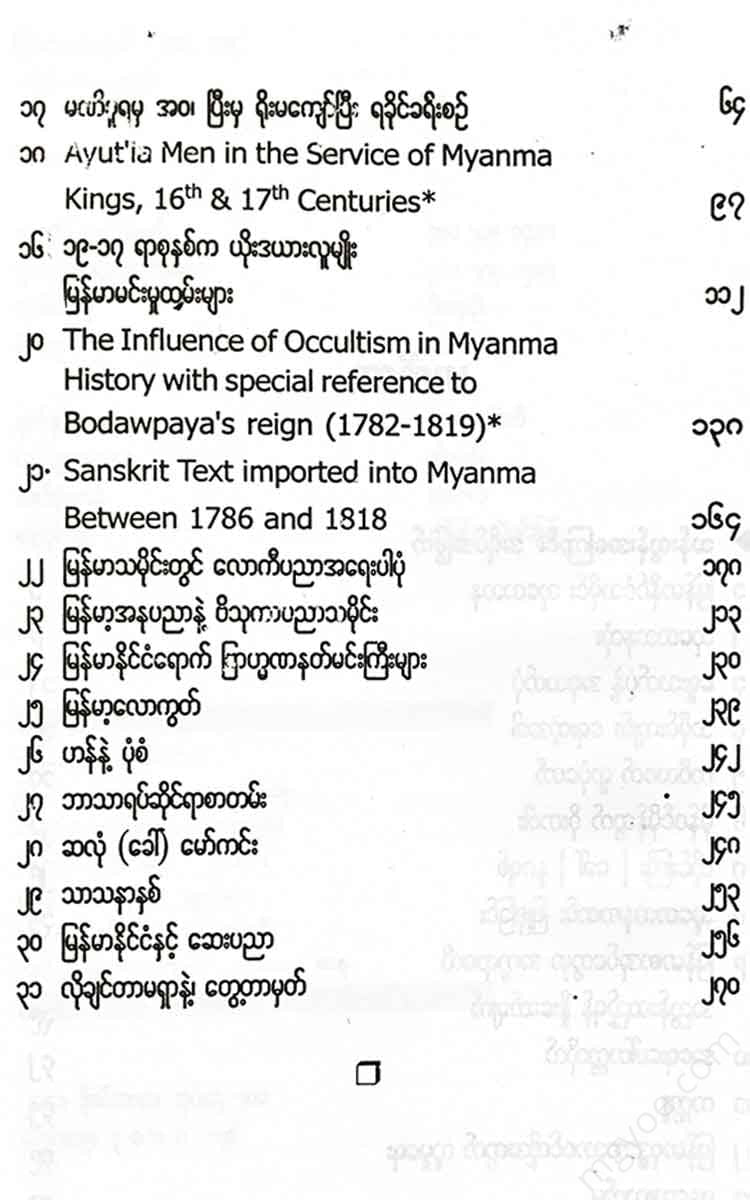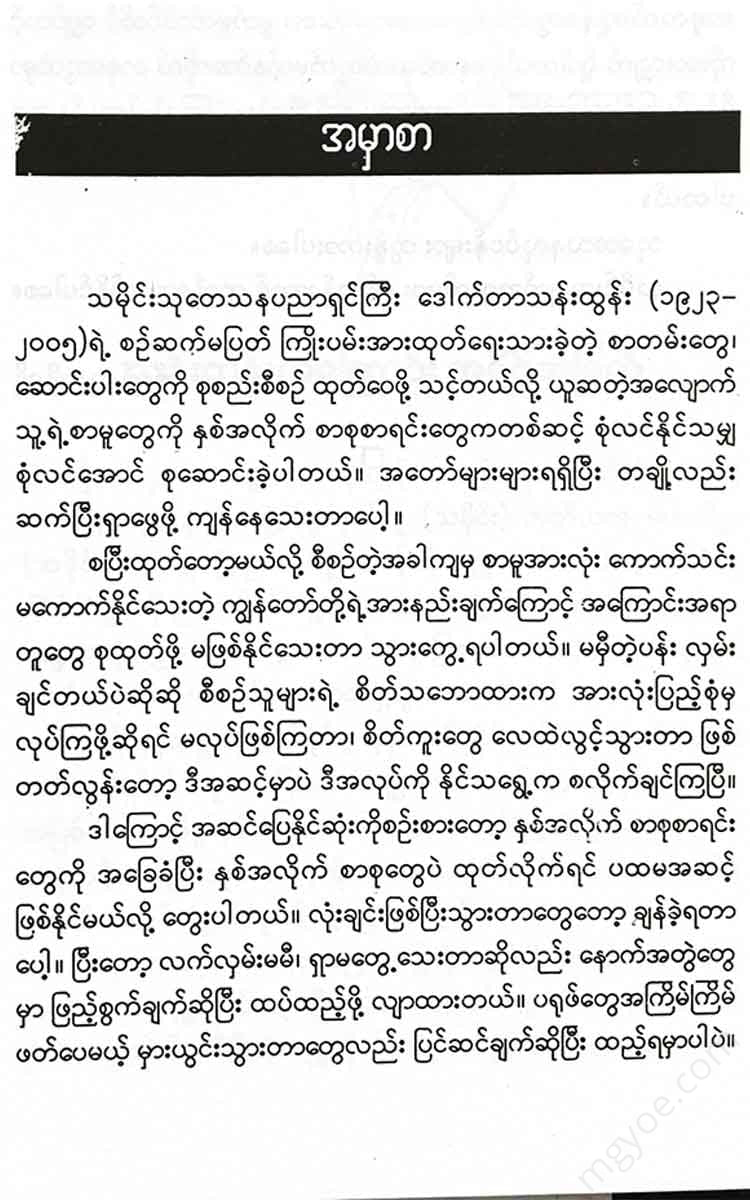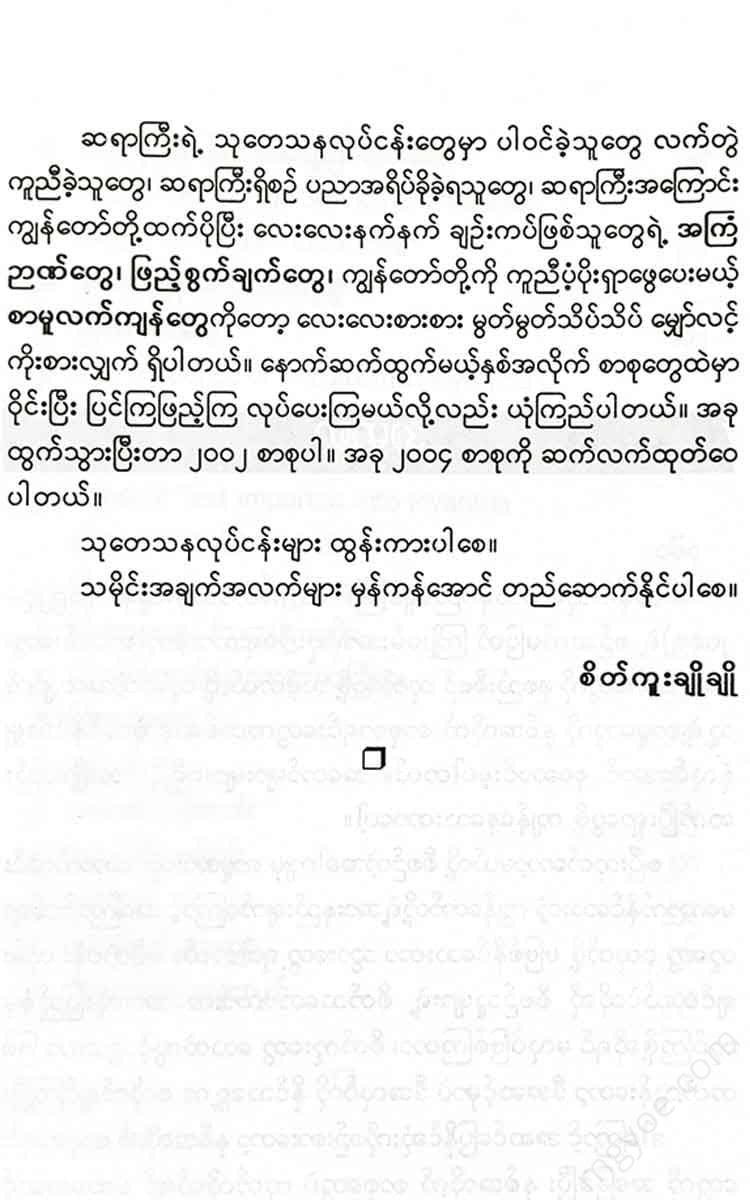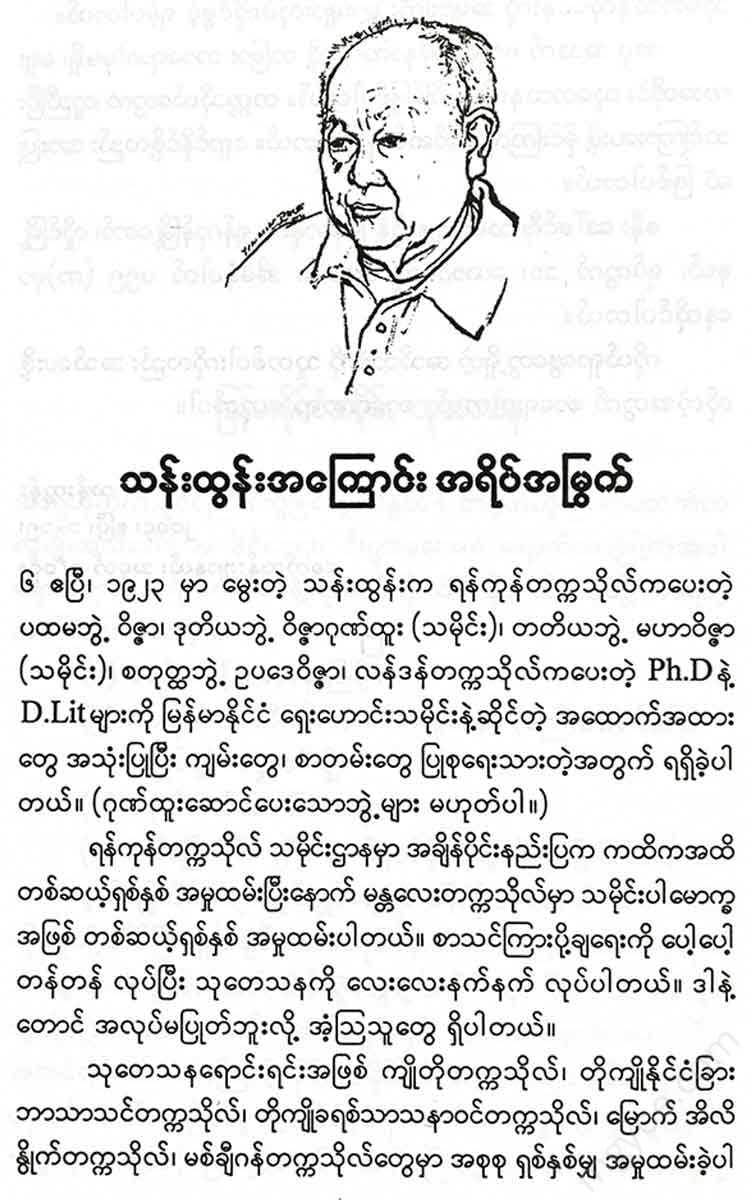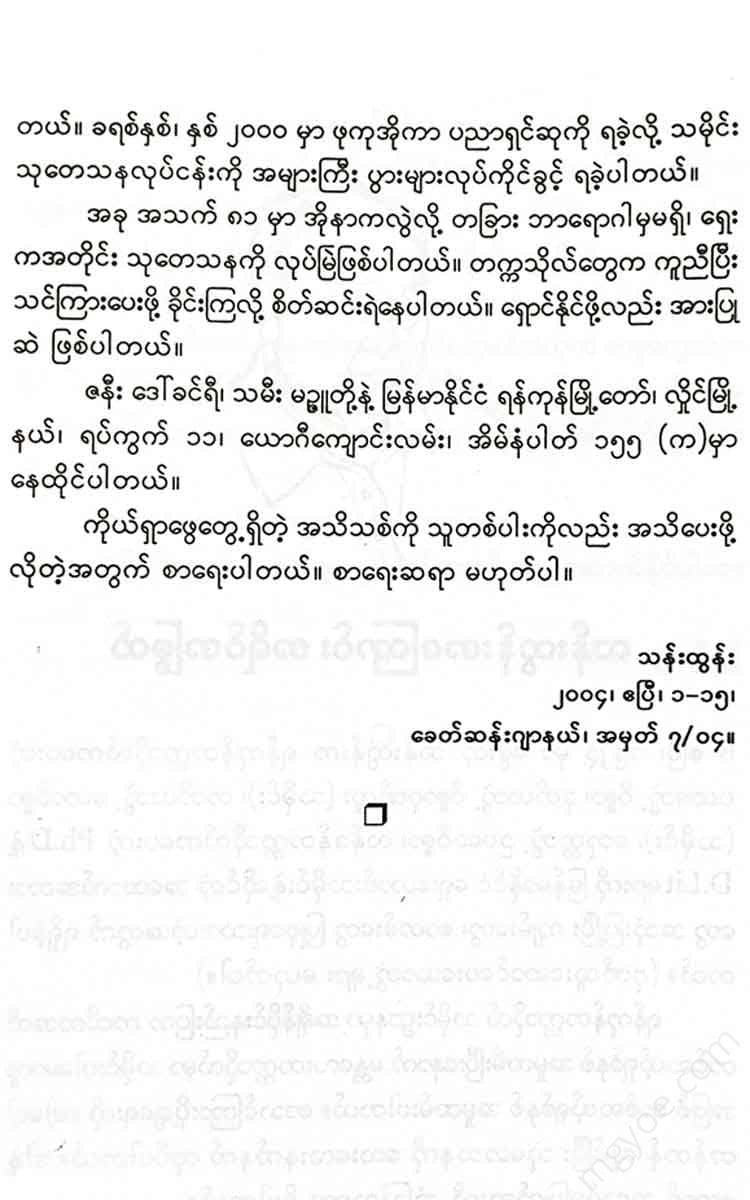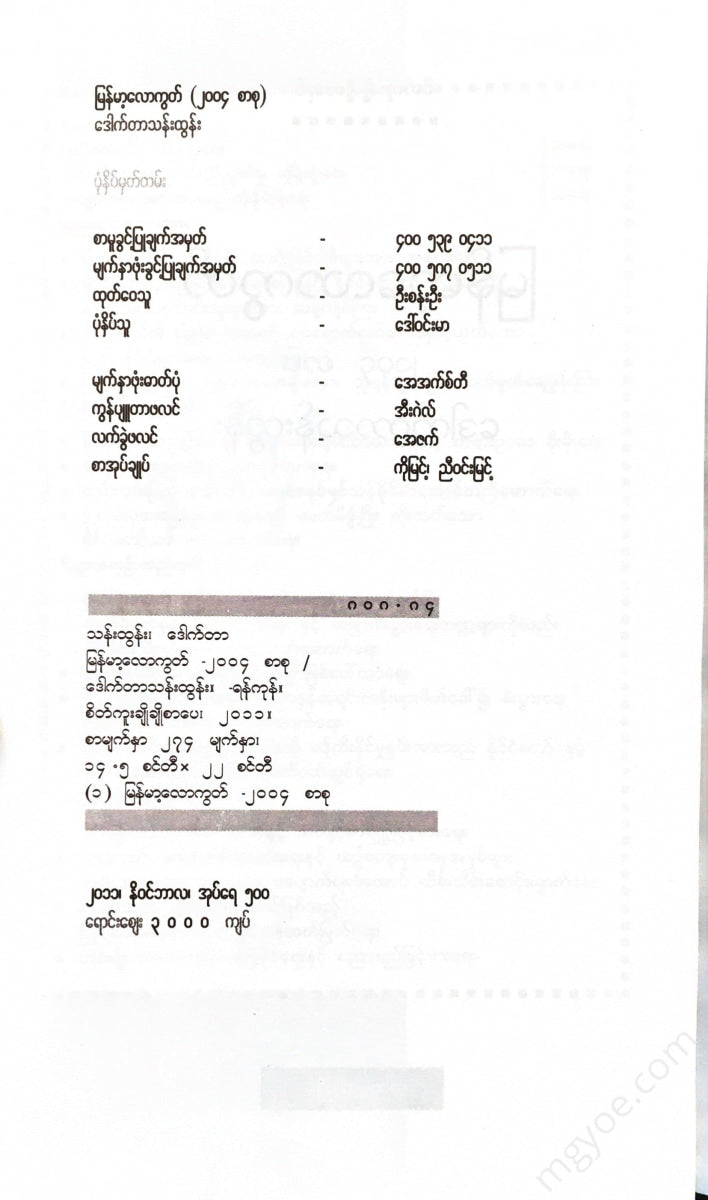စိတ်ကူးချိုချိုစာပေ
Dr. Than Tun - Myanmar World 2004 Collection
Dr. Than Tun - Myanmar World 2004 Collection
Couldn't load pickup availability
Myanmar History Research
When Europeans came to the major Asian countries like India and China for political and economic reasons, they needed to know the geography and history of the region they were visiting. The reason they came was...
(1) To serve as a Christian missionary.
(2) To serve (as mercenaries) for the kings of various Asian countries.
(3) To trade.
(4) To seize territory and establish a military state.
If you conquer a territory, you have to take on the responsibility of administration. They really want to avoid that responsibility. In terms of business, if you know the historical background of those people, if you know their language, it will be very easy to communicate with them. So they study the history of the country. They want to pass on everything they know to the people who will come after them and take over their business. That is why they study the politics, society, economy, customs and beliefs of the Asians as thoroughly as possible and record everything they know. The usual way to do this is to write a book.
Once you have written a book, you need to determine who it is written for.
(1) Are you someone who just wants to read for knowledge?
(2) For people who are interested in a specific area and already know the basics, but still want to know a little more?
(3) Is he someone who wants to enter a region politically, economically, and religiously to achieve his own goals?
(4) You should carefully evaluate and write about the scholar you want to specialize in.
For those who specialize, “You should write after doing research. It means searching for the source. In the Bagan period stone inscriptions, the Burmese word for omniscience is “seeing and understanding.” Now, the syntax has been slightly modified to “seeing and understanding.” I think the meaning has become a little lighter. When you say knowing, you need to know the cause and effect. In addition, you need to consider how it can be connected to the surrounding environment and how it can be beneficial. It is a reminder that even though it is not that big, it should be as complete as possible. I use a simple word called RESEARCH to search for perfection like that. It means “finding again.” If I were to explain that word a little more…
(1) The facts that have already happened (2) have been forgotten for years, (3) it must be rediscovered. (4) When this is rediscovered, it must be as complete as possible. (5) So that people will know more than they already know. (6) Whatever people know now, they will correct the mistakes. (7) Fill in the gaps, (8) How to use the knowledge that has been supplemented in this way to benefit them, (9) Note who among the people who discovered it first discovered this knowledge, (10) Make the technology he finds his own and allow him to enjoy money, position, and wealth as a reward, (11) Write and distribute papers, pamphlets, and books to benefit the public. For these reasons, people are encouraged to do research. But they do not think that my research will be profitable for me. The satisfaction of my work is profit.
How to write the English word RESEARCH in Burmese was thought about around 1900. The original meaning of the word is to search again, and DISCOVERY does not mean to find again. It means to find a way to use it, to try to find a more useful way than the previous way of using it. Therefore, let's think about whether it means to invent a new way of using something based on something, or to combine it and invent it. Another thing to say is to plan to use what is already known widely. If the person doing the research is a teacher, it can be easily used. Let me give an example to make these points clear.
I decided to go to the University of London, Oriental and African Studies, and write about Buddhism in the Pagan period of Burma.
1. There is a document called “Sasana Lankara” written by Raja Sangha.
2. I will prepare and complete that book.
3. We will use stone inscriptions from the Bagan period to create a series of illustrations, cut-out and fill-in designs.
4. Two years of service, additional time may be granted if there is a valid reason. However, it cannot exceed two years.
5. I will write in English, will it be possible to write a book in English?
6. Where is the teacher to guide me? There is no teacher, no teacher to see, no teacher to hear. There can be a teacher to see. I read and imitate the writing style of Ceylonese Buddhism, Thai Buddhism, Middle Eastern Buddhism, Chinese Buddhism, Tibetan Buddhism, Japanese Buddhism, Korean Buddhism, Christianity, Buddhism, and the teachings of Muhammad for Muslims, and imitate their writing style, their discussion style, and the way they present their content in a profound way. I started on October 22, 1952. On January 4, 1956, after finishing the thesis, the examining committee examined it and awarded me a doctorate. This means that even if it is not very good, it is acceptable for a doctorate. The examining committee approved the publication as submitted. Since this recommendation was the best recommendation, I returned to Burma by sea on the Mira steamer. The ship was delayed for ten days because the dock workers were not working due to the 2500th anniversary of the birth of Buddhism in Ceylon. The ship arrived at Yangon port in Myanmar after a month and ten days. When I tried to publish my book, it was published in the Journal of the Myanmar Research Society, December 1978, Volume 61, Volumes 1 and 2, pages 263.
Now I am over eighty years old. As the age-old ceremonies have become more fashionable, I have visited Taunggyi University, Khyen Sapanglong University, Magway University, Mandalay University, Meiktila University, Monywa University, and the National Archives. After the war, I received a Bachelor of Arts in History from the Mogo Road (Shwe Bon Thar Road) Emergency University in 1946, a Bachelor of Arts in Law in 1948, a Master of Arts in History in 1950, a Ph.D. from the University of London in 1956 , and a D.Lit. from the University of London in 1985. I have been researching ancient Burmese history, writing papers, and writing books, teaching Burmese stone inscriptions to people interested in Burmese history in Myanmar, Japan, England, America, and Canada, and have become a busybody working with Burmese history. Now I am still a teacher, researching ancient Burmese history, and teaching people who are now pretending to write books for their Ph.D. degrees how to do research without being pretentious. I have been teaching people who are not as good as me for fifty-four years, so I think of them as “my students.” I get angry because these guys don’t show off their behavior. When I greet someone who says, “I’m fine, teacher,” I say, “I’m fine, I’m not sorry.” You could interpret this as, “This old man is over 80, so he’s a kid again.” “He’s crazy.” I don’t care. It’s true that I want to shout and curse. They are at least 25 years older than me, so they won’t get angry if I curse. Besides not cursing, I would like to talk about ancient Burmese history research if I get the chance. I don’t care about cursing, and I remember that even if I know a little about what research is, it’s good to talk about it. The kind of writing we write should be put in a research journal. Since there is no research journal anymore, we only write in books like film songs and poems. The scholarship fee used to be 5 kyats, now it’s 2,000 kyats, which is enough for a good meal. That is the meditation on deathlessness. It is a constant source of joy. Now I will talk about the research on ancient Burmese history. I will talk briefly. I also told the students, "I am so sad to hear my voice again."
1. Choose a topic that no one knows yet.
2. Find evidence about it.
3. Improve your ability to use evidence. This means that if you are fluent in French, Chinese, or English, you will be able to read and take notes on evidence. I mean, you will be able to organize your notes and write down what comes first, what comes last, how it started, what happened, and what the consequences were.
4. If it's a topic that someone else has already written, you should base it on their writing, correct their mistakes, fill in what they lack, and make it better than others.
I would like to use an example of what I have done myself to illustrate these points.
I went to London University for my Ph.D. as a government scholar sent by Burma. I was sent, but I didn’t believe it. After arriving in England, I went to Yugoslavia and never returned to Burma. I was also a member of Than Htun Communist Party, which was the chairman of the All Burma Students’ Union. I also fought against the fascists in my own town and village. I was a district leader in the anti-fascist movement. So I pretended to be in academia temporarily, and I thought that politics was my passion and my choice, so I would go back to politics. But I didn’t. These were things I did when I was in my twenties. Now, I’m in my eighties, and I won’t do politics. If I do what I can for the country, then yes. The topic I chose for my Ph.D. is “Buddhism in Myanmar.” There is the “Sasaṇa Lingāra Kyaṇa” written by Raja Sankha, and there is the “Pali Literature of Burma” written in English by Mabel Bode 16:1 sargscą Niharajam Ray 697:09 “ Myanmar Pali Buddhism”, “Thekāta Buddhism”, and there are U Pe Maung Tin, who are very famous and famous in Myanmar ancient history, and Saya Pe’s brother-in-law GH. Luce , and ask yourself whether you can be better than them. I also asked myself this question. Saya Luce opened the way. There are nearly six hundred and ten ancient Burmese stone inscriptions in number. What is not included in their writings is written in the five volumes of “Traditional Burmese Stone Inscriptions” that I am talking about now. Although it is not easy to read and understand them, people like C. 0. Blagdon tried to read and interpret the inscriptions on four Pyu bone urns inscribed around the first century AD. Ray wrote the Buddhist Book and served as an advisor to the Sixth Myanmar Council for over a year, Two years later, he became a senior teacher.
HLShorto came with the Allied forces after World War II and studied old Mon and middle Mon writings and is working on a Mon-English dictionary. W. Dunn, HFSearl are working on a Burmese-English dictionary. You are Burmese. You are better than them. The papers and books they wrote were written before World War II and a year or two after the war. You are writing ten years after the war. You should be able to correct their mistakes. You should be able to fill in the gaps in their books. The books you wrote in English are not very big. They speak English from birth. You started learning English when you were six years old. Only six years apart. You really have to make up for that six-year gap.
